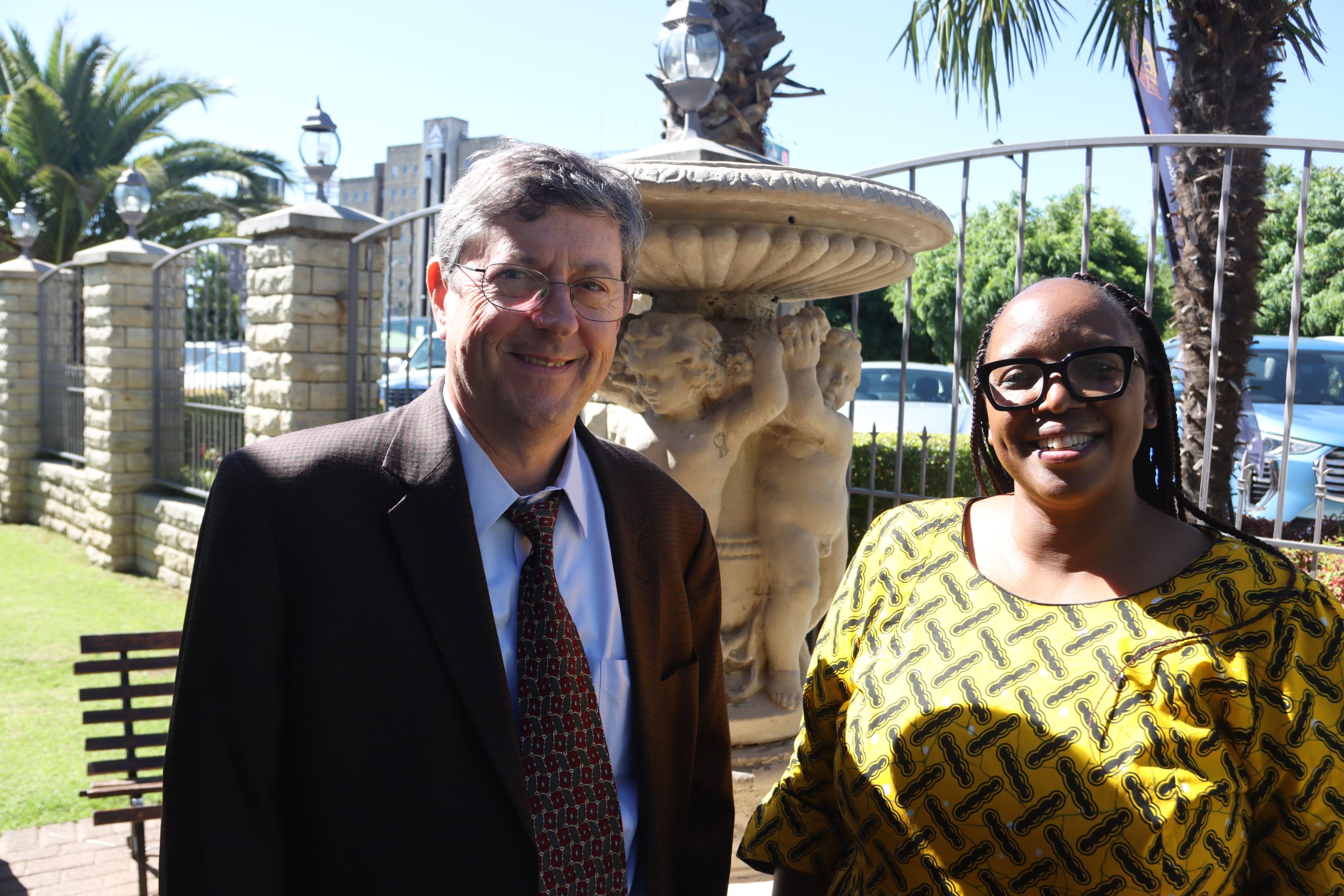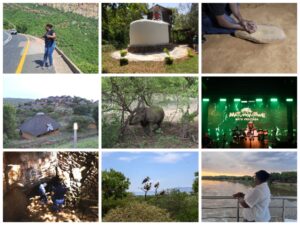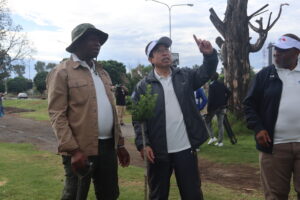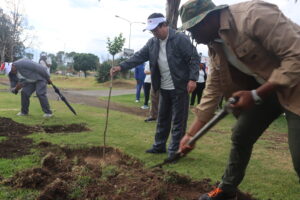… training of doctors should be a priority for the Lesotho government
The Lesotho Boston Health Alliance (LeBoHA), a partnership between Boston University and Lesotho’s ministry of health, has scored a lot of wins since its inception in 2001. Among others, the alliance has had to change the trend of local doctors, trained in other countries; refusing to return home to serve because of an array of challenges. Executive director, Elizabeth Nkholongo and president Dr Brian Jack speak to Africa News 24 managing editor, Silence Charumbira, on the wins bagged and challenges faced by the alliance over the years. The pair also speak on the need for the government to prioritise doctor training. Parts of the conversation are captured below:
Silence: Why is it important for Lesotho to have indigenous doctors?
Elizabeth: I think by now you’re aware that there was a time when we had just one doctor seeing 20 000 patients. Even if HIV was the only disease that a doctor would have to manage, it still would have been a struggle. And now, why indigenous doctors? Because they will be able to speak the language that the majority of their patients will be speaking. If I can go to my doctor, and then express myself and he or she cannot understand the level of pain that I’m experiencing (because of a language barrier), then it means even the treatment will likely be inappropriate. And also, it’s about culture.
If you do not understand my culture, as a doctor, there are some things that you might miss that you could easily have picked if you understood my culture. So, I think that is why it was important that we have Basotho doctors.
Also, when we talk about healthcare services, we need people who can interact with patients even at village level because that is where healthcare services start from. That is why we have village health workers.
Dr Brian: I remember when we first started, just about 20 years ago, the government paid Cuba for doctors because Cuba, at that time, overtrained doctors and exported them. But the doctors were not particularly well trained. And they were expensive. So, the government was paying a lot of money for Cuban doctors. The first time I went to Motebang Hospital in Leribe, there were two Cuban doctors working there and neither of them was trained to do inpatient care, to take care of patients in the hospital. And both of them spoke Spanish, not English.
So, they couldn’t work properly because they couldn’t speak to anybody, and they couldn’t have a translator, because they didn’t do any surgery. They also couldn’t understand the cultural nuances. There’s a lot of that in healthcare.
The positive results of training doctors at home
Dr Brian: The last time I came to Lesotho and went through the passport line, I asked the woman who was stamping the passports if she had noticed any changes and she thought for a second and said, “there are now Basotho doctors in the districts. Now regular people are recognising the impacts of this programme.
Elizabeth: And maybe another thing that is also important is the fact that Lesotho is a nurse driven healthcare system. You’ll find that most of our healthcare professionals are nurses. And then you will now have a doctor who doesn’t speak the language, that means you will need a nurse to come and interpret. And that is not the responsibility of the nurse to interpret.
Another concern is over privacy and confidentiality (which is eroded), when there is a nurse as a middle person. Back in the day you would hear people complaining on radio that when they went for consultation and tried to explain how they were feeling, the next moment they would receive a prescription without any explanation because of the language barrier.
Dr Brian: At the beginning, from 2005 to 2010, I spent a lot of time going to medical schools in the region, to meet with young Basotho doctors, because in those days, the ministry of health paid for about 10 students annually to go to medical school in South Africa and other places. They would finish and do their internship, and then they would stay in those countries. And we asked them, why don’t you come back home? And they would say, because if we come home, the ministry would place us in the mountains. And we’d be all by ourselves, no collegiality and no support.
And now fast forward 15 years… because we always knew even back then, there would be four or five from every group who would say, if there was something to come home to, because I want to serve my country, take care of my beloved family and my elders, to help serve the country in this time of need, which it really was back then, so we started the program. And we have found that every year, there have been people who want to come back because they’re idealists. And over time, we now have 12 graduates and 12 people in training spread out in seven of the 10 districts. There’s a clear career path.
Read more on the subject
Lesotho Boston Health Alliance facilities opened
Lesotho-Boston Health Alliance named 2022 STFM Innovative Program Award winner
About Lesotho Boston Health Alliance
Silence: Training of doctors, why is it important for Lesotho to do it train its doctors? Why is it important for any country to train its own people, for particularly the medical field?
Dr Brian: I think a lot has to do with the cultural nuance that they bring, the language, to speak your own language, to work in your own district and taking care of your elders and that sort of thing. The nuances of health around… health has an enormous cultural component, even in the way people present their pain. When people say something hurts in one country, that can mean a totally different another country. It is important to know how people express pain, and how they express sadness, and fear and all those various things. That makes a big difference in your diagnostic capabilities.
That’s kind of on the personal level, and then on a kind of national macro level, for countries to train doctors in their country, in a way that is appropriate for the numbers of the people. Before, it was always doctors coming from different African countries to escape economic hardships elsewhere or to come closer to South Africa so that they would eventually migrate there after two or three years. And they never really commit to the place, commit to actually improving the health of the people. They would just be looking to do better for themselves by going to South Africa. But when you’re from the country, you’re invested in making the place better.
Elizabeth: The other things is that, when it comes to the financial aspect, it is cheaper to train people at home. Training doctors in another country is expensive. The second issue is that if I’m a doctor and speak the language and I understand the culture, it means that I understand even the impact of those elements on the health of the population.
Silence: How long do you think it will take for Lesotho to start providing primary doctor training of undergraduates?
Elizabeth: I think we have made some progress. And we now know what is it that we need to do in the program. We have been consulted by the Minister of Health to be technical advisors and we are optimistic that if we can follow the plan… it can be a short time, even a year, it can. But you know this is something that is beyond our scope when it comes to making these decisions. We actually have suggested the steps that can be followed to establish a medical school… so, it’s a matter of whether the government says one of the priorities for the health sector is establishing a medical school.
Dr Brian: So, this is medical school: it has two years of basic science, which is classroom stuff. Science. And then three years of clinical learning in the hospitals, and two years of internship where they work in hospitals as apprentices. Then there are three to five years of postgraduate specialty training in the various specialties. Then there’s an OB, psychiatry, surgery, pediatrics; potentially many more, and then subspecialty, which will come in time. So right now, there’s family medicine.
The ministry has asked us to start postgraduate training in these areas, and we’re making progress on all of them. The ministry expects us to find outside money to start the programmes, and then they will assume the cost of the programmes once they’re started. You’d think the country would want to pay for it. They don’t.
Elizabeth: You know, Lesotho politicians are like that. Sometimes you get those in power… working to get things done. And their tenure is never beyond two years. Once they go out, we have to start pitching again.
Dr Brian: So, we’re very close to securing funding for obstetrics. The idea would be to have a well-trained consultant obstetrician, in each district hospital and then the other things like surgery will be next. And it’s possible, we could do that soon. When these things are done right, it’s not a bad strategy to start here and then backfill.
Silence: I have a close friend whose father broke his leg and needed screws and failed to get any assistance in a local hospital until he died. The friend says her father had become a problem for hospital staff because he was always reporting them whenever he felt mistreated. If a person with a broken leg that needs screws ends up dying while awaiting service while admitted in hospital, then there is something terribly wrong with the service culture and training, which brings me to my question: what needs to be done to improve Lesotho’s terrible service culture?
Dr Brian: I think it’s a really good question. And just to validate that, is that there are a lot of those stories. And I think in other environments, this would not be tolerated and obviously, that case would be an enormous multimillion dollar lawsuit. Just about any other country. But not here. So, there’s this tolerance of that sort of thing. Filling medicine is a specialty of caring for people right? Because it’s not like a disease or an organ, right? That’s the whole specialty is basically how to care for my patient. And can you teach how to care for? Can you teach empathy?
To choose people who have empathy into family medicine, and then and then provide continuity is a principle of blindness where you have you have a patient who comes in sees you, you give them a card saying I will be your doctor. That’s a big commitment right on both sides. And it makes a difference if I know you as my patient who becomes a friend at some level? You’re not going to mistreat that patient. Sympathy is a really big piece of it.












